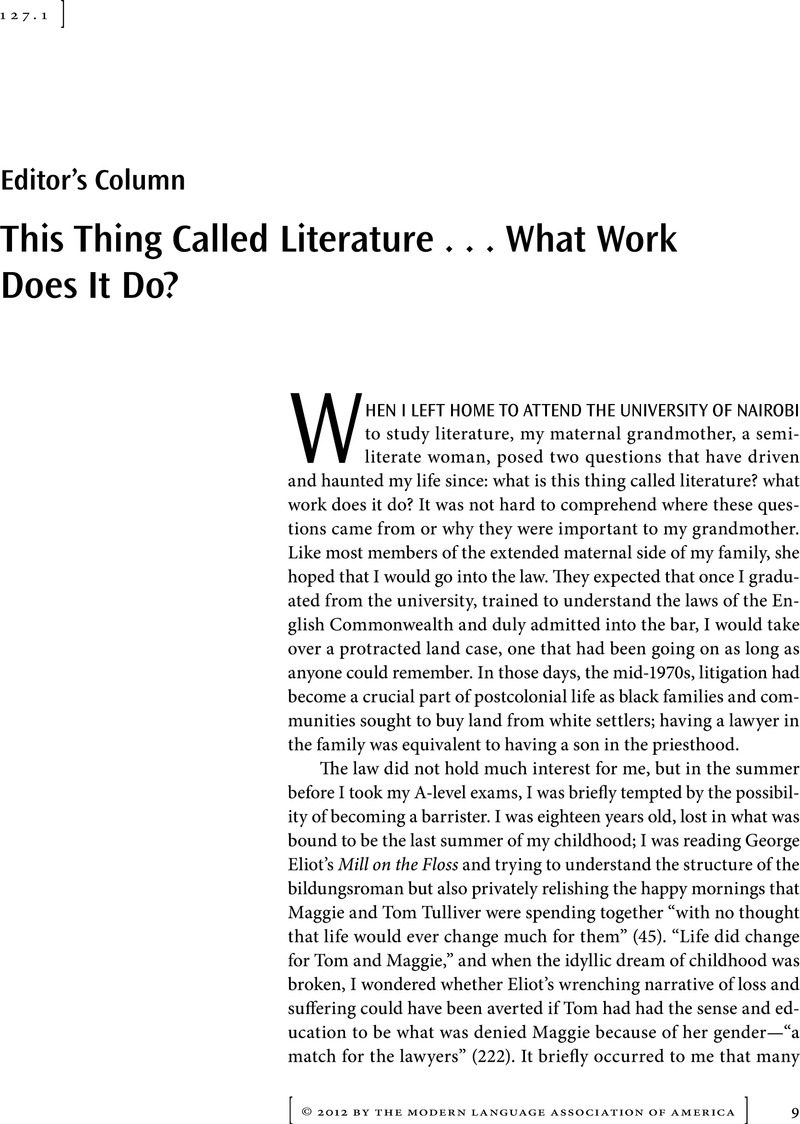Crossref Citations
This article has been cited by the following publications. This list is generated based on data provided by Crossref.
Bhatnagar, Rashmi Dube
and
Kaur, Rajender
2011.
South Asian Realisms and Its Futures.
South Asian Review,
Vol. 32,
Issue. 1,
p.
13.
Gagiano, Annie
2012.
Lyrical Meditations on Spirituality and Sexuality: Drawing a Poetic Line.
Current Writing,
Vol. 24,
Issue. 2,
p.
198.
Hamera, Judith
2013.
How to Do Things with Performance (Again and Again …).
Text and Performance Quarterly,
Vol. 33,
Issue. 3,
p.
202.
Edwin, Shirin
2013.
Underlining religious sidelining: Islamic Feminism and Marxism in Mohammed Umar's Amina.
Women's Studies International Forum,
Vol. 37,
Issue. ,
p.
64.
Moe, Aaron M.
2016.
The Educational Significance of Human and Non-Human Animal Interactions.
p.
133.
Willmott, Glenn
2018.
Reading for Wonder.
p.
1.
Lovesey, Oliver
2019.
Examining George Eliot.
George Eliot - George Henry Lewes Studies,
Vol. 71,
Issue. 2,
p.
143.


